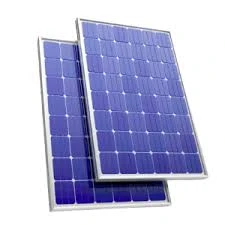Solar Power Cost per kWh - Affordable Renewable Energy Solutions
The Economics of Solar Power Cost Per kWh
As the world shifts towards sustainable energy, one of the most significant players in this transition is solar power. Given its environmental benefits and renewable nature, solar energy has gained traction among governments, businesses, and homeowners alike. Yet, a crucial aspect that influences the adoption of solar technology is its cost effectiveness, particularly the cost per kilowatt-hour (kWh). This metric is pivotal as it directly affects the overall feasibility of solar installations.
The Economics of Solar Power Cost Per kWh
The levelized cost of electricity (LCOE) is a commonly used financial metric that helps compare the cost of solar energy with other energy sources. LCOE factors in the total cost of building and operating a solar power system over its expected lifespan, dividing it by the total electricity produced. For solar energy, the LCOE has seen a dramatic decrease, usually ranging between $30 to $60 per MWh, depending on various factors like location, system size, and financing methods. This translates to a cost per kWh of approximately $0.03 to $0.06, positioning solar power competitively against fossil fuels.
solar power cost per kwh

Geographic location plays a vital role in determining the cost per kWh for solar energy. Areas with high solar irradiance and longer sun hours, such as deserts, can generate more electricity, resulting in a lower cost per kWh. Conversely, regions with less sunlight may face higher costs due to the need for larger systems to produce the same amount of energy. Government incentives and subsidies can further impact these costs, encouraging solar installation and adoption.
Another crucial factor affecting solar power cost is the technological innovations being developed. Advances in solar panel efficiency and energy storage solutions have continually enhanced performance, leading to cheaper kWh costs. Improved manufacturing processes and economies of scale contribute to lower prices as the market grows. Furthermore, breakthroughs in solar technology, such as bifacial panels or new energy storage systems, can enhance the profitability and attractiveness of solar investments.
Despite the favorable trends in solar power costs, challenges remain. Initial upfront costs can deter potential adopters, and fluctuating policies at local, state, and federal levels can create uncertainties for investors. Nevertheless, the long-term savings offered through reduced electricity bills and energy independence remain compelling reasons for many to consider solar energy.
As the demand for renewable energy escalates globally, solar power's cost per kWh will continue to play a critical role in its adoption. The convergence of technological advancements, favorable policies, and decreasing costs positions solar energy not only as a beacon for environmental sustainability but also as an economically viable solution for electricity. Ultimately, by reducing the cost per kWh, solar energy has the potential to provide a cleaner, more affordable energy future for all.
-
String Solar Inverter: The High-Efficiency Solution for Smart Solar EnergyNewsJul.14,2025
-
Revolutionizing Rooftop Energy with the Power of the Micro Solar InverterNewsJul.14,2025
-
Power Independence with Smart Off Grid Solar Inverter SolutionsNewsJul.14,2025
-
On Grid Solar Inverter: Powering the Future with Smart Grid IntegrationNewsJul.14,2025
-
Monocrystalline Solar Panels: High-Efficiency Power for the Future of Clean EnergyNewsJul.14,2025
-
Bifacial Solar Panel: A Smarter Investment for Next-Generation Energy SystemsNewsJul.14,2025







